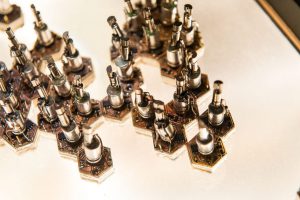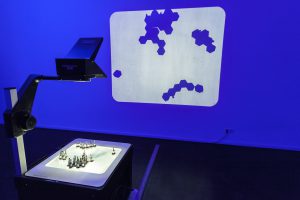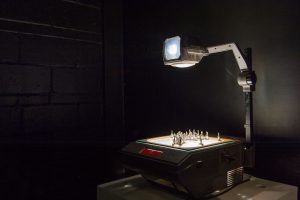crystal forming robots
The crystal forming robots are a physical simulation of a growth process, similar to the growth of crystal structures. Each robot operates autonomously and is driven by the light of the overhead projector. When a robot has collected enough energy it is all released at once through a small motor and the robot will make a random movement.
The robots are equipped with tiny magnets, so that when they come close while they are moving, they attract each other. Over time a crystal like structure emerges from more and more little robots forming larger clusters. Through the overhead projector this process is magnified and an abstract movie of the real physical robots is projected to the wall.
The background of this project is research on systems of growth, self organization and plastic change. The core idea to use robots to make the process of growth tangible and to develop an experimental system to study growth and the self-building of networks.


An interview on the project appeared on the blog we make money not art Article Crystal Forming Robots on Overhead Christian Faubel, in: Rangel, A., Reizner, J., Verdicchio, M., Carvalhais, M., and Tudela, P (Eds.), Proceedings of xCoAx 2014, Conference on Computation, Communication, Aesthetics and X, Porto, Portugal 2014 pdf


